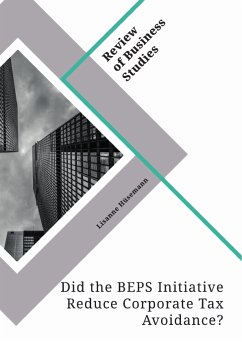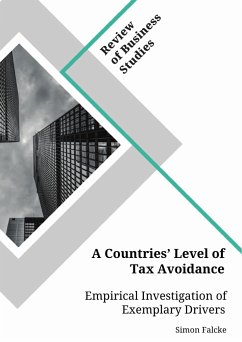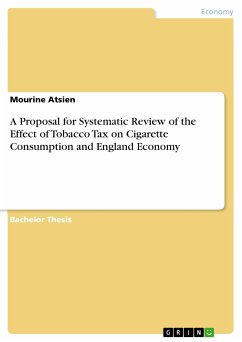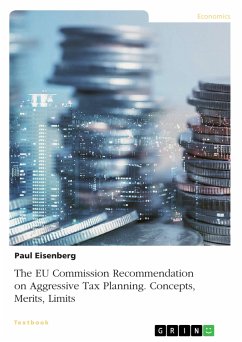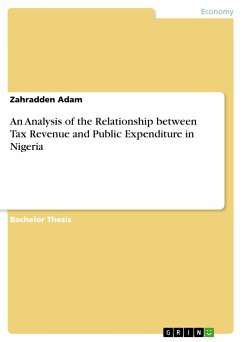Bachelor Thesis from the year 2021 in the subject Business economics - Review of Business Studies, grade: 1.0, Otto Beisheim School of Management Vallendar, language: English, abstract: This paper aims at answering the research question as to whether the BEPS initiative reduced corporate tax avoidance. Given the literature, the author expects that corporate tax avoidance among multinational enterprises declined in response to the introduction of the BEPS initiative. In order to test this hypothesis, an empirical analysis, using a firm's consolidated GAAPETR(i,j,t) as a measure of corporate tax avoidance, is conducted. After considering the development of a firm's mean consolidated GAAPETR(i,j,t) over time, the author examines the influence of several independent variables relating to the issues specifically addressed by the BEPS initiative on a firm's consolidated GAAPETR(i,j,t). By conducting several cross-sectional tests, cross-sectional variation in those effects, depending on firm size, as measured by total assets, firm profitability, as measured by Return on Assets, and country size, as measured by Gross Domestic Product, is also explored. Although an overall downward trend in a firm's mean consolidated GAAP ETR, which is used as a measure of corporate tax avoidance, is observed, most recent data, i.e., data from 2017 to 2019, suggest the reverse. In particular, small and more profitable firms, i.e., firms with total assets lower than 214.180 million and a ROA greater than 2.30 percentage points, are observed to be characterized by a slightly lower mean consolidated GAAP ETR than large and less profitable ones.
Dieser Download kann aus rechtlichen Gründen nur mit Rechnungsadresse in A, B, BG, CY, CZ, D, DK, EW, E, FIN, F, GR, HR, H, IRL, I, LT, L, LR, M, NL, PL, P, R, S, SLO, SK ausgeliefert werden.

